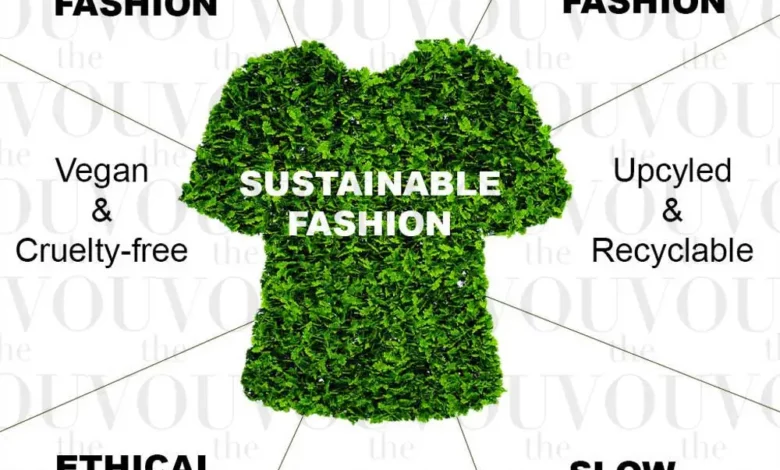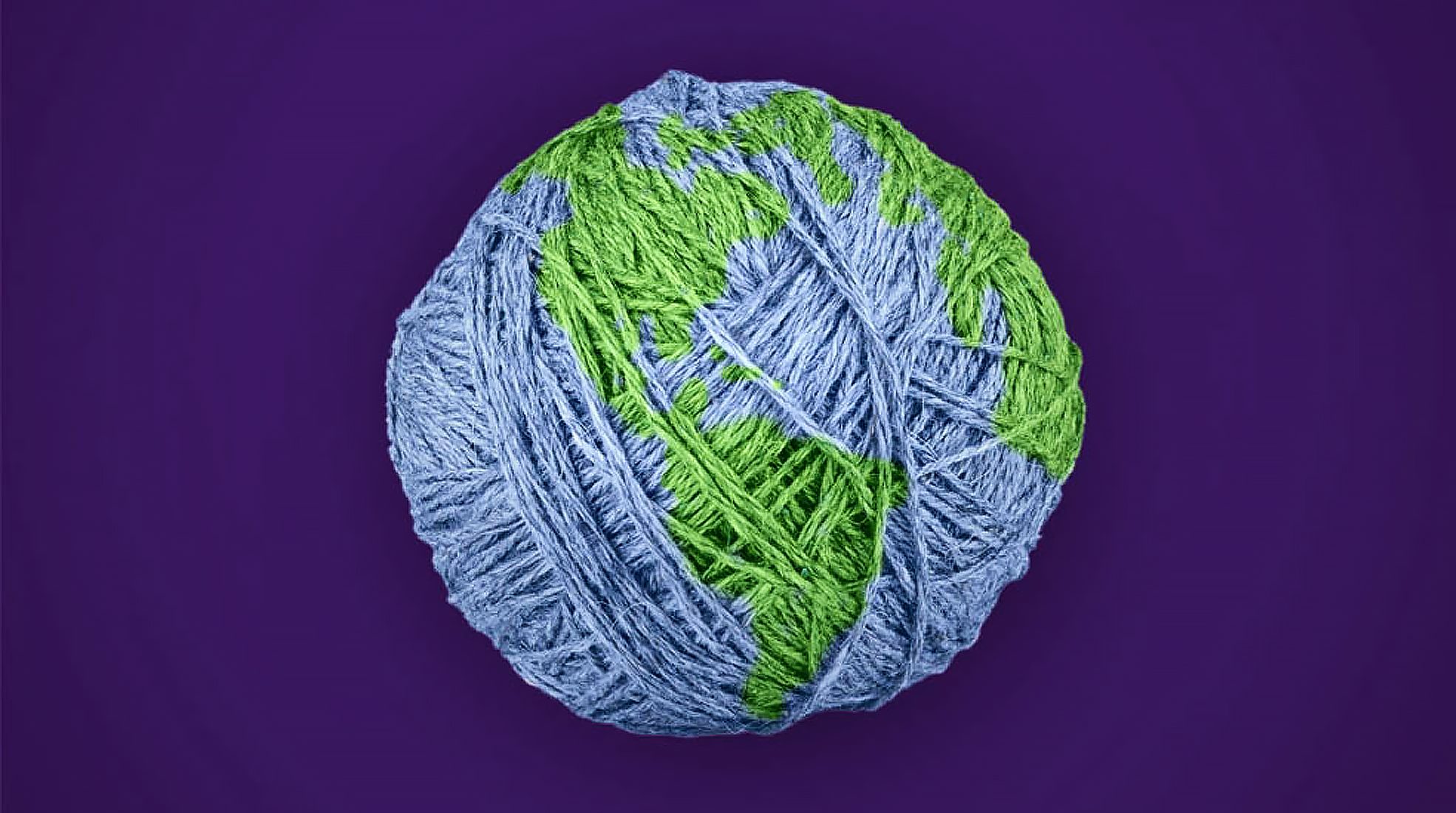
Indian fashion companies are looking at creating a circular fashion economy
The ‘Conscious Effort’ conclave, initiated by entrepreneur and sustainability expert Saachi Bahl, is an important platform that aims to bring conscious consumption into the mainstream. In light of the IPCC 2023 report and the urgent warnings from scientists about the dire consequences of climate change, it becomes crucial to address sustainability issues, especially in industries like fashion and beauty that have a significant impact on the environment.

Fashion and beauty content continue to dominate social media, influencing consumer behavior and driving increased shopping activity. However, this consumption-driven culture clashes with the urgent need to protect our climate and make sustainable choices. The ‘Conscious Effort’ conclave seeks to bridge this gap by hosting panel talks, engaging with fashion designers, luxury brands, and corporate giants like Mahindra to find data-backed solutions and make actionable changes more accessible.

The theme for the conclave in 2023, ‘Innovation & Craftsmanship—Future of Sustainable Design,’ highlights the importance of combining innovation and traditional craftsmanship to create sustainable solutions. The panel discussions featuring designers like Gaurav Jai Gupta, Nachiket Barve, Yogesh Chaudhary, and industry experts such as the director of Jaipur Rugs and the Chairman of Aquafil provide insights into the challenges and opportunities in sustainable design.
By bringing together stakeholders from the fashion and design industry, the ‘Conscious Effort’ conclave creates a platform for knowledge-sharing, collaboration, and the exchange of ideas. It aims to drive positive change and encourage responsible practices in the fashion and beauty sectors. Through these efforts, the conclave strives to raise awareness, empower consumers, and push for a more sustainable future.
In a time when the urgency to address climate change is paramount, initiatives like the ‘Conscious Effort’ conclave play a vital role in advocating for sustainability, fostering innovation, and promoting conscious consumption in the fashion and beauty industries.
India indeed has a rich tradition of handloom weaving and handicrafts, which not only contribute significantly to the country’s economy but also represent its cultural heritage. These crafts provide employment opportunities to a large number of people, particularly in rural areas. Sustaining these traditions and craft clusters is an essential aspect of sustainability in India, going beyond just changing fabric or production processes.
Conscious living is deeply ingrained in the lifestyle of many Indian villages and smaller townships, where traditional practices and craftsmanship are valued and celebrated. Sustainability in the Indian context should encompass preserving and supporting these crafts, ensuring that livelihoods dependent on them are sustained. It goes beyond mere tokenism and embraces the integral role that craft plays in the country’s culture and identity.

During the panel discussion, fashion designer Nachiket Barve emphasized the significance of craft in India, describing it as the beating heart of the nation. Unlike some other countries where craft may have been diminished or relegated to the fringes, India celebrates and engages with it in everyday life. Barve stressed the importance of combining innovation with a sense of patience when it comes to acquiring new clothes and accessories. By embracing technology like AI, designers can showcase changes virtually instead of creating endless physical samples, which can help reduce waste and landfill.
This approach aligns with the principles of sustainability, promoting conscious consumption and reducing the environmental impact of the fashion industry. By valuing craftsmanship, adopting innovative practices, and utilizing technology thoughtfully, the fashion industry in India can contribute to the preservation of traditions, the reduction of waste, and the overall sustainable development of the sector.
The integration of sustainability and craft in India’s fashion industry not only creates economic opportunities but also promotes cultural preservation, empowers artisans, and encourages responsible consumption practices. It recognizes the interdependence between sustainable practices and the preservation of traditions, fostering a more holistic and inclusive approach to sustainability.
The participation of Gaurav Jai Gupta and Giulio Bonazzi at the Conscious Effort conclave highlights the innovative approaches being taken to promote sustainability in the fashion industry.
Gaurav Jai Gupta’s collaboration with a company that makes ink from soot demonstrates a unique and unconventional way of utilizing waste materials. By collecting soot from the air and converting it into dyes, Gupta explores the possibility of using this ‘soot’ dye in yarn and fabric production. This experimentation showcases the potential for transforming pollutants into valuable resources, reducing waste, and promoting more sustainable practices in textile manufacturing.
Giulio Bonazzi’s presence at the conclave as the chairman and CEO of Aquafil Group, the creator of Econyl textile, brings a global perspective on sustainable materials. Econyl is a recycled nylon fabric made from discarded fishing nets, fabric scraps, and carpets, which would otherwise end up in landfills or the ocean. By repurposing these waste materials, Econyl offers a more eco-friendly alternative to the production of new nylon or polyester fabrics. Its adoption by Indian swim and resort wear brands like Verandah, The Summer Shop, and Nadi-Nadi reflects the growing recognition and adoption of sustainable materials in the industry.

These examples demonstrate the importance of collaboration, innovation, and the adoption of eco-friendly materials in creating a more sustainable fashion industry. By exploring unconventional materials and repurposing waste, designers and brands can reduce their environmental impact, contribute to waste reduction, and promote circular economy principles. Such initiatives align with the broader goal of making conscious consumption and sustainable fashion choices more accessible and mainstream.
While discussions on sustainability often revolve around high-end fashion and artisanal crafts, it is crucial to address the impact of the garment industry and the consumption habits of the average Indian household.
The affordability and accessibility of garments made with synthetic materials like nylon or polyester have made them popular choices in the mass market. However, these materials have a significant environmental impact due to their production processes and non-biodegradable nature. It is essential for fast fashion brands, which cater to a wide consumer base, to take responsibility and make conscious changes in their manufacturing and sourcing practices.
Implementing sustainable practices in the mass market can have a significant positive impact on reducing environmental degradation and promoting responsible consumption. This can include using eco-friendly and recycled materials, improving supply chain transparency, reducing water and energy consumption, and promoting fair and ethical labor practices. By making conscious changes, fast fashion brands can lead the way in creating a more sustainable and inclusive fashion industry.

Moreover, educating consumers about the environmental impact of their choices and offering more sustainable options at affordable prices can help shift consumer preferences towards eco-friendly and ethically produced garments. This can create a ripple effect, encouraging other market players to follow suit and driving the demand for sustainable fashion in the mass market.
Overall, the potential for conscious changes in the mass market and homegrown fast fashion brands is immense. By adopting sustainable practices, these brands can play a pivotal role in transforming the Indian garment industry and making sustainable fashion choices accessible to a broader range of consumers.





